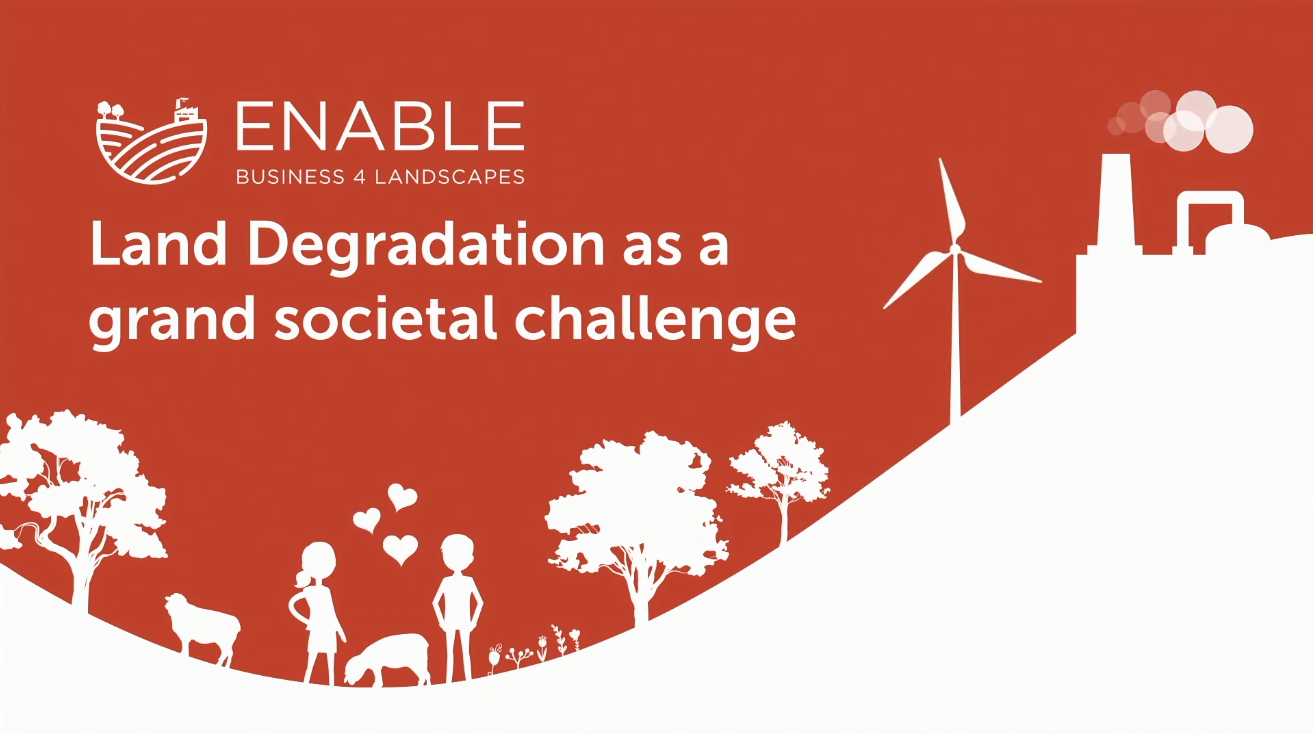Worsening land degradation caused by human activities is undermining the well-being of two-fifths of humanity, driving species extinctions and intensifying climate change (source: IPBES). However, there is a huge potential for restoring landscapes: around two billion hectares of land, about two times the size of China, can be restored.
In celebration of World Soil Day, we are proud to announce the launch of our second free online course today: Business Model Innovation for Sustainable Landscape Restoration.
This MOOC is created by the European Network for the Advancement of Business and Landscape Education (ENABLE). In the MOOC, participants are encouraged to go through the business model innovation process in groups of their choice, based on a common interest. The ENABLE project is a partnership of organizations in the private, public and non-profit sector, led by Rotterdam School of Management, Erasmus University (RSM). The Soil and Water Conservation Research Group at CEBAS-CSIC is part of this partnership and contributed to the development of this MOOC. Subscribing to this free online course starts on Wednesday 5 December, World Soil Day. The MOOC will launch on 14 February 2019.
This free online course aims to equip learners from environmental, business or other backgrounds with practical business tools to restore landscapes. In 8 weeks, you will learn about the phases of Business Model Innovation and how to apply them to landscape restoration. In the MOOC we illustrate every step of the process by zooming in on 3 landscape situations: restoring the volcanic Hekluskogar area in Iceland, crop diversification in southern Spain, and the challenges of recovering from forest fires in Portugal.
This new MOOC builds upon ENABLE’s first MOOC, setting focus on the potential for a positive role of business model innovation for landscape restoration, highlighting the following elements: vision formulation, systems analysis, stakeholder analysis, opportunity analysis, business model design, solution validation, assessment and monitoring, and reflection and iteration.
Contributions from CEBAS-CSIC staff come from Joris de Vente and Carolina Boix Fayos. External parties who contributed to the MOOC are WWF’s Landscape Finance Lab, the Natural Capital Coalition (NCC), Ecosystem Services Partnership (ESP), and many more.
Project leader Eva Rood says: “What all of the partners of the ENABLE consortium realise is that we need to join forces in order to figure out the approach for this wicked problem of land degradation. It’s a typical problem where ecology and economy need each other and this is where the four returns models comes in. So we are trying to jointly come up with models that deliver the financial, social, natural return and return of inspiration instead of only financial capital or only natural capital.”
For more information, see the ENABLE website, and its Twitter, Facebook and LinkedIn pages.
TEASER VIDEO:
